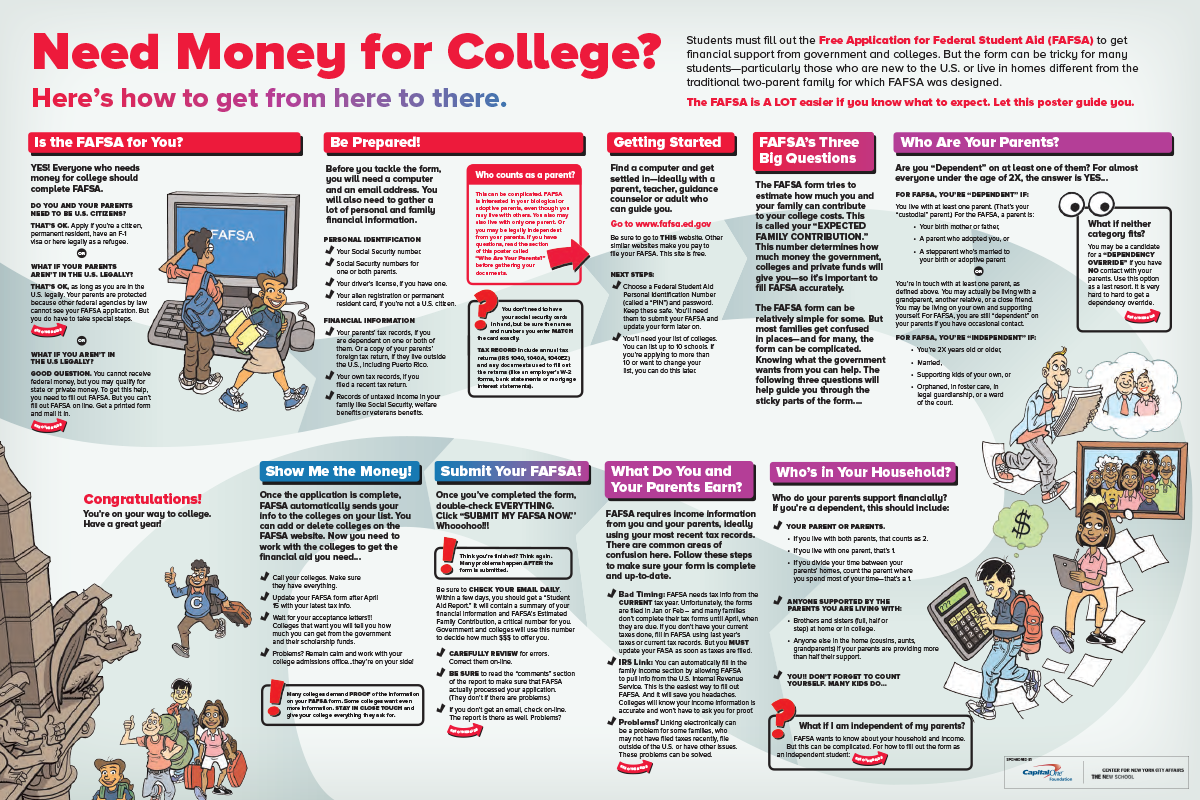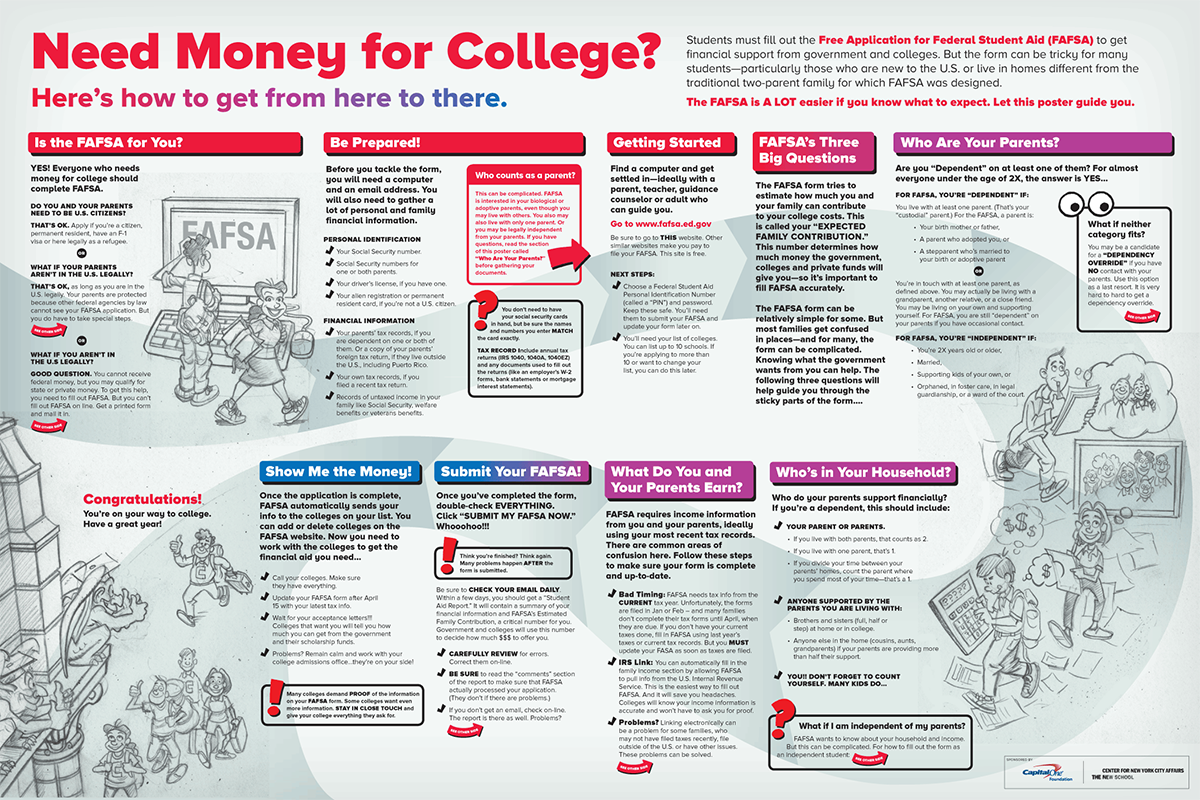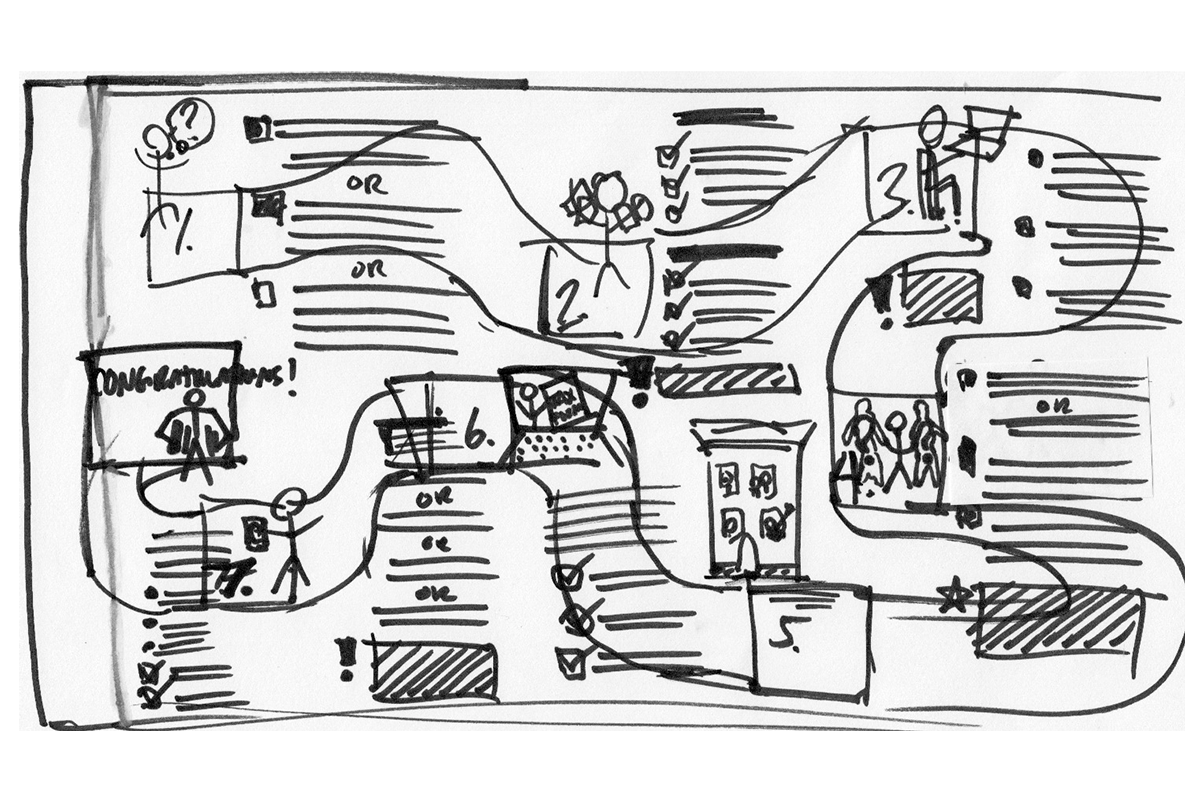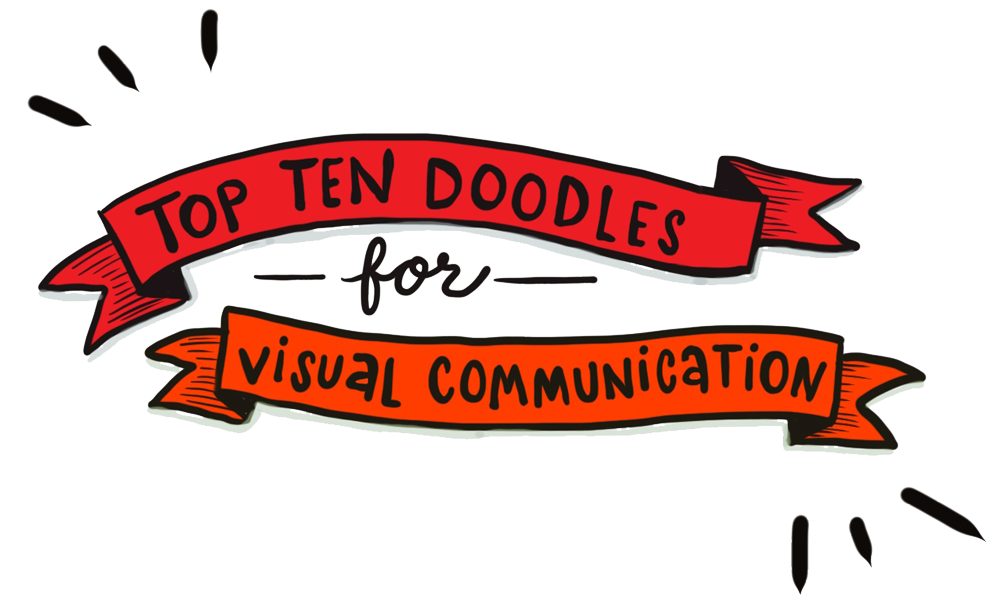Background
Most students must fill out the Free Application for Federal Student Aid (better known as FAFSA) to get financial support from government and colleges. But the form can be tricky for many students—particularly those who are recent arrivals to the U.S. or live in homes different from the traditional two-parent family that FAFSA was designed for – which is the reality for many teens living in NYC. The New School’s Center for NYC Affairs’ research found that a discouraging number of students simply gave up on the form – and with it, a crucial opportunity for college matriculation and success.
Challenge
CFNYCA envisioned a friendly and fun instructional poster that would speak to students as the primary audience, but could also easily used by guidance counselor, teachers, and volunteers in student training sessions. The poster would be distributed throughout the NYC high school system to every guidance counselor, guidance trainers and organizations that train FAFSA volunteers with the goal of reaching as many of the city’s 80,000 high school seniors as possible.
Solution
The project team included our design team, the client – who was also the project’s copywriter and project manager – along with an accomplished editorial illustrator, RJ Madsen.
Working collaboratively with an iterative process, after 2 months we had developed a piece with a “road map” concept. It was succinctly written to direct college-bound seniors down the path they need to take to complete the FAFSA form, finally arriving at the ivy-clad gates of a typical institution of higher education. Hurdles many students encounter were identified, providing solutions and pointing to additional resources.
Results
20,000 copies of the poster were sent directly to all NYC Department of Education high school principals, guidance counselors and college counselors in the first run.
“Congratulations on a job well done with the FAFSA guide. I think it is stupendous!! Really love the look and feel of the way you captured and delivered the information on a often hard to understand topic.”
—Deborah Fuller, Head of Training, Options Center



